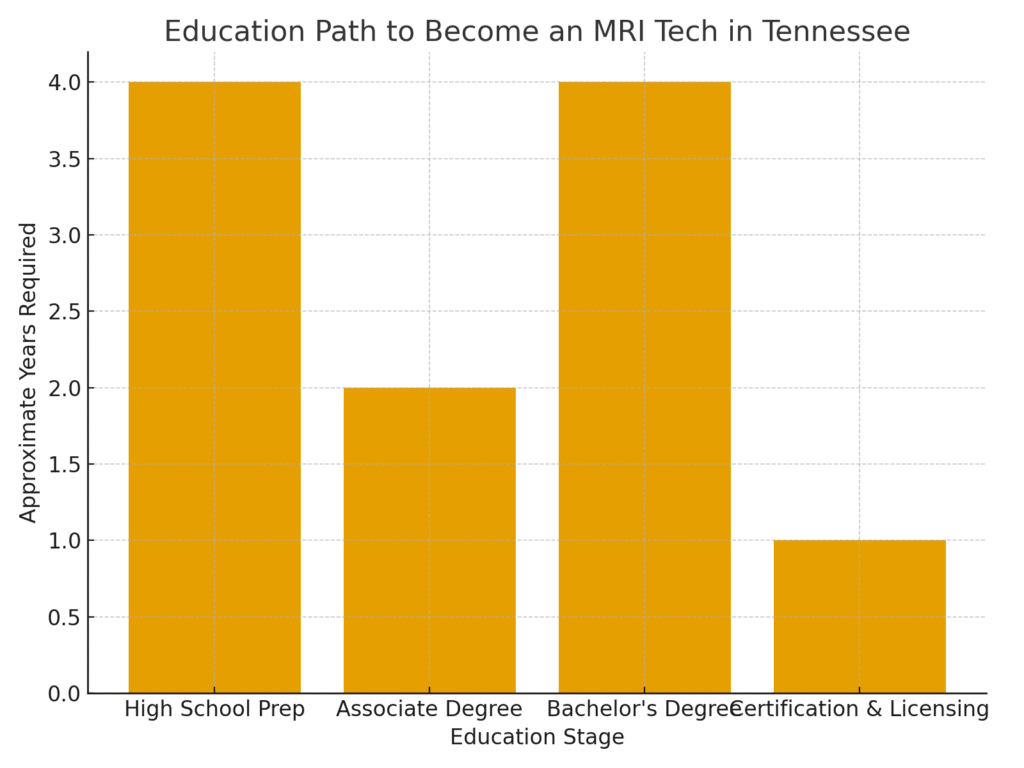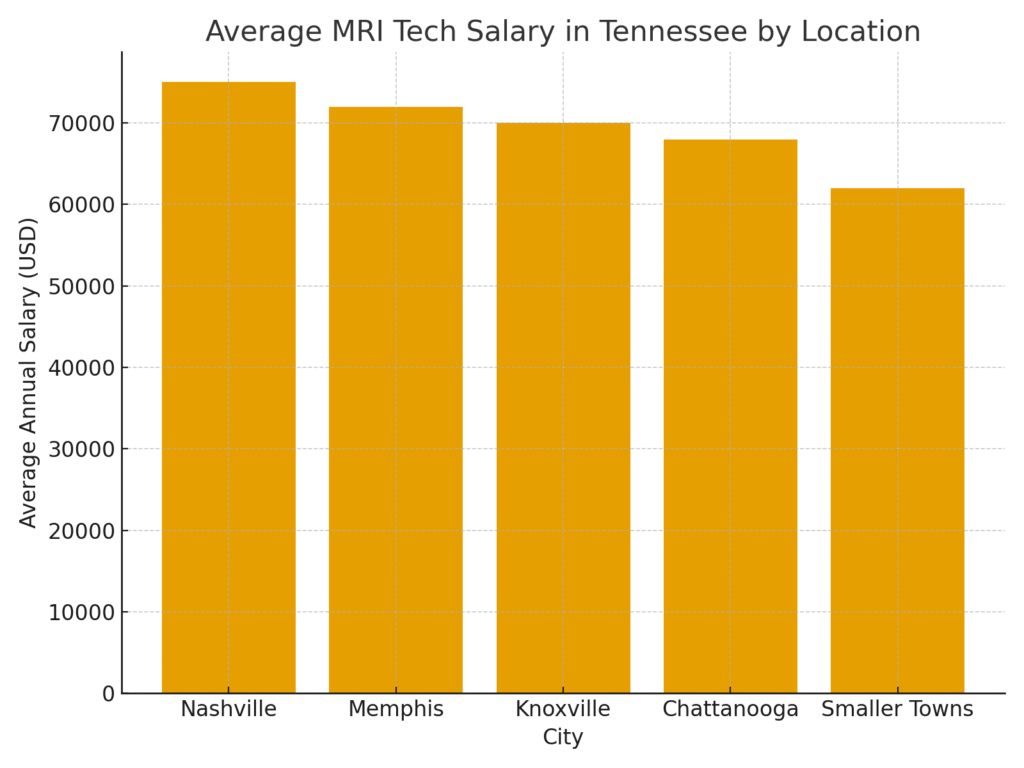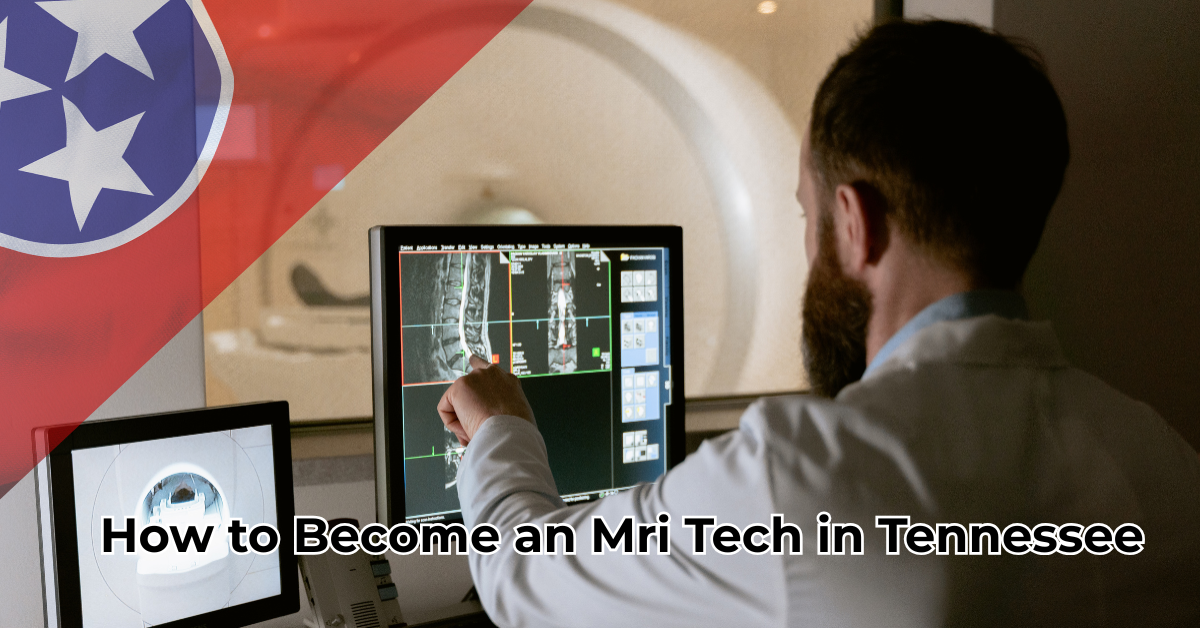Healthcare in Tennessee is growing at a rapid pace, and with it comes a strong demand for skilled medical imaging professionals. Among the most sought-after careers in this field is that of a Magnetic Resonance Imaging technologist.
MRI techs play a vital role in diagnosing medical conditions through advanced imaging technology, making their work both meaningful and rewarding. If you are considering this career path in Tennessee, it is important to understand the education requirements, licensing process, and career opportunities that will guide you toward success.
Understanding the Role of an MRI Tech in Tennessee
Before beginning the journey to becoming an MRI technologist, it is important to clearly understand what the role involves. MRI techs are healthcare professionals trained to operate magnetic resonance imaging machines that capture detailed images of the inside of the human body. These images are used by doctors to diagnose conditions such as tumors, injuries, and neurological disorders.
In Tennessee, MRI techs often work in hospitals, diagnostic imaging centers, outpatient clinics, and specialized medical facilities. Their responsibilities go beyond just operating the machine.
They prepare patients for the procedure, explain the process in simple terms to ease anxiety, position patients correctly for accurate imaging, and ensure safety measures are followed during the scan. They also work closely with radiologists and other healthcare providers, which makes teamwork and communication skills very important in this profession.
This career requires both technical knowledge and compassion for patients. While mastering the use of advanced imaging technology is essential, MRI techs also need to show empathy and patience since many patients may feel nervous during the scan. Understanding this balance of technical and interpersonal skills is the first step in becoming a successful MRI technologist in Tennessee.
Education Requirements: Your First Step Toward the Career
To begin a career as an MRI technologist in Tennessee, education is the foundation. The minimum requirement to enter this field is usually an associate degree in radiologic technology or magnetic resonance imaging. Some students choose to pursue a bachelor’s degree for more in-depth knowledge and broader career opportunities.
In high school, it helps to focus on subjects such as biology, physics, and mathematics since these form the base for understanding medical imaging. After graduation, the next step is to enroll in an accredited college or technical school that offers an MRI program. Accreditation is very important because it ensures that the program meets professional standards and qualifies you to sit for certification exams later.

Typical coursework includes anatomy, patient care, medical terminology, cross sectional imaging, and physics of MRI. Students also learn how to handle equipment safely and how to follow ethical and professional standards in patient care. Programs in Tennessee often take two years for an associate degree and four years for a bachelor’s degree.
This stage requires commitment and dedication because it not only builds technical knowledge but also shapes the professional attitude needed to succeed in healthcare. Completing your education is the first milestone toward becoming an MRI technologist.
Choosing the Right MRI Tech Program in Tennessee
Selecting the right educational program is one of the most important decisions in your journey. Tennessee offers several community colleges, universities, and healthcare institutions that provide specialized training in MRI technology. When comparing programs, there are a few factors to keep in mind.
First, confirm that the program is accredited by a recognized body such as the Joint Review Committee on Education in Radiologic Technology. Without accreditation, you may not be eligible for certification exams or state licensing.
Next, consider the length of the program and whether it fits your career timeline. Some programs offer fast track or certificate options for individuals who are already working in healthcare and want to specialize in MRI.
Clinical training is another major factor. A strong program should provide hands on experience through clinical rotations in hospitals or imaging centers. This allows you to apply classroom knowledge in real life settings and gain confidence in working with patients.
Lastly, look into the resources and support offered by the school. Career counseling, job placement services, and access to modern MRI equipment can make a big difference in your learning experience. Choosing a program that aligns with your goals will set the stage for a successful career in Tennessee.
Certification and Licensing: Meeting Tennessee’s Professional Standards
After completing your education, the next step is becoming certified and licensed to practice as an MRI technologist in Tennessee. Certification is most commonly earned through the American Registry of Radiologic Technologists, often referred to as ARRT.
To qualify, you must graduate from an accredited program and pass the national certification exam. This exam tests your knowledge of MRI principles, safety procedures, and patient care skills.
Tennessee does not currently have a separate state license for MRI technologists, but many employers require ARRT certification as a condition of employment. Being certified also gives you a competitive advantage and demonstrates professionalism to potential employers.
It is important to remember that certification is not a one time process. To maintain ARRT credentials, MRI techs must complete continuing education every two years. This ensures that professionals stay up to date with the latest technology and safety standards. In a rapidly advancing field like medical imaging, lifelong learning is a key part of success.
Gaining Hands On Experience Through Clinical Training
While classroom education builds theoretical knowledge, clinical training develops practical skills. Most MRI programs in Tennessee include supervised rotations in hospitals or diagnostic imaging centers. During this stage, students practice positioning patients, operating MRI equipment, and ensuring images are accurate and clear.
Clinical training also provides an opportunity to learn soft skills that cannot be fully taught in a classroom. Communicating effectively with patients, handling stressful situations calmly, and working as part of a medical team are all essential abilities that are developed through real world experience.
In addition, clinical rotations give students valuable exposure to different healthcare settings. Some may find they prefer the fast paced environment of a large hospital, while others enjoy the personalized approach of a small imaging center. This exposure helps future technologists decide where they want to focus their careers after graduation.
By the time you complete your clinical training, you will not only have technical knowledge but also the confidence and practical ability to perform as a professional MRI technologist in Tennessee.
Job Outlook and Salary Expectations in Tennessee
Tennessee offers a promising future for MRI technologists due to the state’s growing healthcare sector. With the rising need for advanced imaging services, the demand for skilled MRI techs is expected to stay strong for many years. According to national data, MRI technologists have a faster than average job growth rate, and Tennessee follows this trend closely.
In terms of salary, MRI techs in Tennessee can expect to earn competitive wages. The average salary typically ranges between sixty thousand and seventy five thousand dollars per year, depending on location, experience, and workplace setting.

Larger cities such as Nashville, Memphis, and Knoxville often provide higher salaries due to greater demand, while smaller towns may offer slightly lower pay but often come with less pressure and a stronger sense of community.
Beyond the financial benefits, this career also provides stability and long term growth. With continuing education, MRI techs can specialize further or move into supervisory roles, education, or advanced imaging fields. This combination of rewarding pay and career advancement makes MRI technology a secure and fulfilling path in Tennessee.
Steps for Building a Successful Career as an MRI Tech
Completing your education, certification, and training are the foundations, but building a long lasting and successful career requires more. One important step is networking with other healthcare professionals. Attending seminars, joining professional organizations, and connecting with peers can open doors to job opportunities and mentorship.
Continuing education is another vital part of career growth. As technology evolves, new MRI techniques and machines are introduced. Staying updated through workshops, courses, or online training not only maintains your certification but also ensures you remain competitive in the job market.
Developing excellent communication skills will also set you apart. Patients often feel anxious before undergoing an MRI scan, and being able to reassure them with kindness and clarity makes a lasting impact. Employers value technologists who combine technical expertise with compassionate care.
Finally, always remain committed to professionalism and patient safety. Following ethical standards, respecting patient privacy, and maintaining accuracy in imaging are qualities that define a trusted MRI technologist. By focusing on growth, compassion, and professionalism, you can build a meaningful and rewarding career as an MRI tech in Tennessee.
Final Words
Becoming an MRI technologist in Tennessee is a rewarding journey that combines education, certification, and compassion for patients. This career offers stability, growth, and the chance to make a real difference in healthcare.
From choosing the right program to gaining clinical experience and achieving certification, each step builds the foundation for success. With strong job demand and competitive salaries across Tennessee, MRI technology is an excellent path for those seeking both purpose and security in their profession. If you are dedicated, patient focused, and eager to learn, this career can open doors to a bright future.
FAQs
How much do MRI techs make in TN?
MRI technologists in Tennessee earn an average salary between sixty thousand and seventy five thousand dollars per year, depending on experience and location.
How to become MRI tech in Tennessee?
You need to complete an accredited MRI or radiologic technology program, pass the ARRT certification exam, and gain clinical training to qualify for jobs in Tennessee.
What is the fastest way to become an MRI tech?
The fastest route is completing a certificate program if you already work in healthcare, otherwise an associate degree takes about two years.
How fast can you become an MRI tech?
Most people can become MRI technologists in two to three years through an accredited associate program plus certification.

